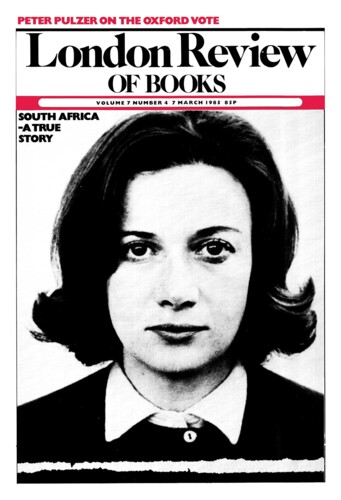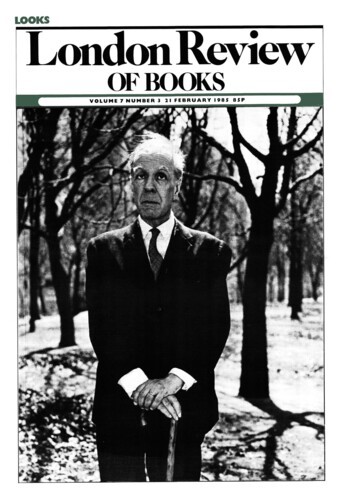Return of the Native
Hugh Barnes, 7 March 1985
Homesickness is fabulous magic. Even as the world shrinks and the epic edge is blunted, the resettlement myth persists. Ulyssean travelogues are few and far between in Caryl Phillips’s The Final Passage and the novels of Paule Marshall, but families uproot themselves. Their stories correspond, but not in time or place. Phillips’s travellers leave their small Caribbean island for Britain in the 1950s, when prospects were cheery. The white folks of the West had never had it so good: too good, or so their masters told them, to settle at menial labours. Since the publication of her first novel, Brown Girl, Brownstones, in 1959, Paule Marshall has been weaving a delicate history of the Barbadians who emigrated to America earlier in the century. Stepping off the boats, though not all were so fortunate, the wayfarers arrived in their new homes with nothing to declare but memories and aspirations.


